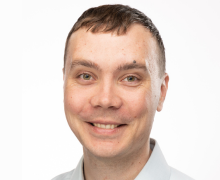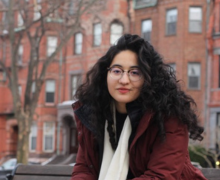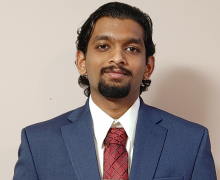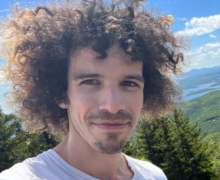Next-Generation Fellows 2024

Jonathan Alfson is an assistant professor of Physics at Bushnell University. He completed his Ph.D. at Oregon State University studying physics education. He earned a B.S. in Physics and a B.A. in Mathematics from Arizona State University. His research interests are focused on how students think and learn using different representations, with a particular attention to the coordination of multiple external representations. Jonathan has previously volunteered as an advocate for children in foster care and for fellow graduate employees at Oregon State University. He looks forward to applying his advocacy and physics education skills to the issue of nuclear weapons.

Denisse Cordova Carrizales will be starting a Ph.D. at MIT’s Nuclear Science and Engineering Department this fall to conduct experimental research on extreme materials for energy applications. She graduated from Harvard College with a B.A. in physics with honors, and while at Harvard, she did experimental condensed matter research with Prof. Julia Mundy. Aside from her research at Harvard, she has worked at the Princeton Plasma Physics Laboratory on computational plasma thruster models, at Commonwealth Fusion Systems researching fusion device engineering, and at the Etscorn Observatory calculating the path of a near-Earth asteroid. Denisse is dedicated to diversity and inclusion in physics, founding Primus in Physics at Harvard—an affinity group for low-income, first-generation college students studying physics. Outside of physics, Denisse enjoys learning about public utility regulation, Chicano history, and energy justice.

Pranav Nalamwar is a 3rd year Ph.D. student at the University of Notre Dame studying Nuclear Astrophysics. He received B.S. degrees in Physics and Astrophysics from Michigan State University. His thesis focuses on the origin of the universe’s heavy elements, both by studying the nuclear physics properties of heavy nuclei and studying dynamical systems via simulations. Beyond his work, Pranav actively engages in community outreach, teaching the public of all ages about general astronomy, nuclear physics, and science policy. Pranav has given a variety of public talks in planetariums, schools, and libraries. He is concerned with how scientists can better inform the public about the implications of global affairs and garner public interest in science for the future.

Eli Sanchez is a Ph.D. candidate in the Nuclear Science and Engineering department at the Massachusetts Institute of Technology. His research examines the implications of hypersonic boost-glide weapons for global security. He received a Bachelor’s of Science in Chemistry from the University of Texas at Dallas and interned at Oak Ridge National Laboratory for a year prior to beginning his Ph.D. In the early stages of his graduate studies, he became interested in nuclear risk reduction and hopes to promote responsible and judicious nuclear weapons policies through his career.
